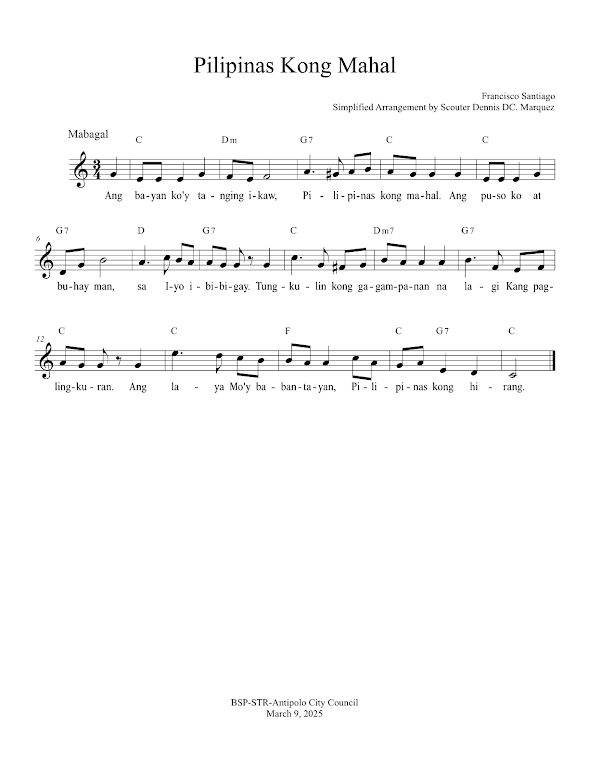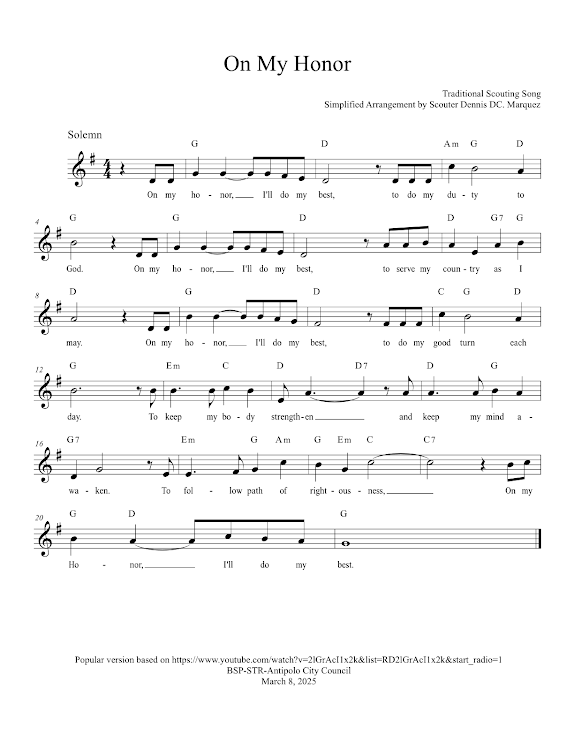Saturday, March 8, 2025
Friday, March 7, 2025
Sunday, February 2, 2025
Feb. 2, 2025: A. Receive the Light of Salvation with Joy - Luke 2:22-32
- Background of the Gospel Reading
In this passage, Mary and Joseph bring Jesus to the temple in Jerusalem to fulfill the Jewish law regarding purification after childbirth and the consecration of the firstborn. This act reflects the deep-rooted traditions of the Jewish people, who were committed to observing the Law of Moses. The significance of this event lies in its demonstration of obedience to God's commandments, as well as the anticipation of the Messiah that permeated Jewish culture. The temple was a sacred space where God's presence was believed to dwell, making it an appropriate setting for such a momentous occasion. - Interpretation Based on Commentaries
- According to the Jerome Bible Commentary, this passage highlights Jesus' role as the fulfillment of God’s promises. Simeon’s proclamation upon seeing Jesus emphasizes that He is destined to bring salvation not only to Israel but also to all nations, symbolizing a universal hope.
- From the perspective of Bible Scholar Barclay, Simeon’s declaration that Jesus will be “a light for revelation to the Gentiles” signifies a pivotal shift in understanding God's covenant. This light represents truth and moral guidance, extending beyond Israel to encompass all humanity.
- From the Sacra Pagina Commentary, it is noted that Simeon and Anna embody the faithful remnant of Israel, eagerly awaiting God’s consolation. Their recognition of Jesus as the Messiah illustrates that spiritual insight often comes from those who are humble and devoted rather than from societal elites.
- Challenge to Our Present Generation
In an age marked by division and uncertainty, this Gospel reading challenges us to recognize and embrace Christ as our guiding light. Just as Simeon and Anna awaited God's promise with patience and faith, we are called to cultivate hope amidst our struggles. The challenge lies in remaining steadfast in our faith and being open to recognizing God's presence in our lives, even when it is not immediately apparent. - Reflection
This passage invites us to reflect on our own readiness to receive Christ into our lives. Are we attentive like Simeon and Anna, eagerly seeking God's presence? Their joy upon encountering Jesus serves as a reminder that true fulfillment comes from recognizing Him as our Savior. In moments of doubt or darkness, we must remember that Christ is our light—illuminating our path and guiding us toward peace and salvation. - Personal Prayer
“Dear Lord, help me to remain open and receptive to your presence in my life. May I seek your light in times of darkness and find joy in your promises. Grant me the faith exemplified by Simeon and Anna as I navigate my journey with hope and anticipation for your coming. Amen.”
- IBreviary (for the Daily Readings)
- The Jerome Biblical Commentary
- Sacra Pagina
- William Barclay’s Daily Study Bible (Commentary)
Feb. 2, 2024: B.Receive the Light of Salvation with Joy - Luke 2:22-40
- Background of the Gospel Reading
In Luke 2:22-40, we witness the presentation of Jesus in the temple, a significant event rooted in Jewish tradition. According to Mosaic Law, a mother was required to undergo purification after childbirth, and the firstborn son was to be consecrated to God (Exodus 13:2). This ritual underscores the importance of obedience to the law within Jewish culture, where adherence to tradition was paramount. Mary and Joseph's actions reflect their piety and commitment to these customs, highlighting their role in fulfilling God's covenant with Israel. The temple setting is also crucial, as it symbolizes the intersection of divine promise and human expectation. - Interpretation Based on Commentaries
- According to the Jerome Bible Commentary, this passage emphasizes Jesus' fulfillment of the Law from His very infancy. The act of presenting Him in the temple signifies not only obedience but also His identity as the holy one destined for a unique role in salvation history.
- From the perspective of Bible Scholar Barclay, Simeon's recognition of Jesus as "the salvation" reveals a profound theological truth: Jesus embodies God's promise and hope for all people. Simeon's words about Jesus being "a light for revelation to the Gentiles" highlight the universal scope of Christ's mission.
- From the Sacra Pagina Commentary, it is noted that Simeon and Anna represent faithful anticipation of God's promises. Their acknowledgment of Jesus as the Messiah illustrates a deep spiritual insight that transcends societal norms, emphasizing that true recognition comes from spiritual discernment rather than mere physical observation.
- Challenge to Our Present Generation
In a world often overshadowed by despair and division, this Gospel reading challenges us to recognize and embrace the light of Christ in our lives. Just as Simeon and Anna waited patiently for God's promise, we too are called to cultivate hope and faith amidst uncertainty. The challenge lies in actively seeking God's presence and recognizing His work in our daily lives, especially when it may seem hidden or delayed. - Reflection
This passage invites us to reflect on our own readiness to receive Christ. Are we like Simeon and Anna, eagerly anticipating God's action in our lives? Their joy upon encountering Jesus serves as a reminder that true fulfillment comes from recognizing Him as our Savior. In moments of doubt or darkness, we must remember that Christ is our light—guiding us towards peace and salvation. - Personal Prayer
“Dear Lord, help me to remain steadfast in my faith as I await your presence in my life. May I always recognize your light amidst my struggles and share that light with others. Grant me the patience and joy exemplified by Simeon and Anna as I seek your guidance each day. Amen.”
- IBreviary (for the Daily Readings)
- The Jerome Biblical Commentary
- Sacra Pagina
- William Barclay’s Daily Study Bible (Commentary)
Friday, January 31, 2025
Jan. 31, 2025: Nurture the Seeds of Faith in Your Heart - Mark 4:26-34
- Background of the Gospel Reading
In Mark 4:26-34, Jesus shares two parables that illustrate the nature of the Kingdom of God through agricultural imagery. The first parable, the Parable of the Growing Seed, describes a farmer who scatters seed on the ground and waits for it to grow, highlighting the mysterious and autonomous process of growth. The second parable, the Parable of the Mustard Seed, contrasts the small size of the mustard seed with its potential to grow into a large shrub. This reflects a cultural understanding among Jews that agricultural practices were deeply intertwined with their identity and spirituality. The land was a gift from God, and farming was not only a means of sustenance but also a metaphor for spiritual growth and God's providence. - Interpretation Based on Commentaries
- According to the Jerome Bible Commentary, these parables emphasize that God's Kingdom begins in small and seemingly insignificant ways but has the potential to grow beyond expectations. The farmer's role is passive; he sows the seed and then waits, symbolizing faith in God's work.
- From the perspective of Bible Scholar Barclay, the mustard seed represents not just growth but also inclusivity. The imagery of birds finding shelter in its branches signifies that God's Kingdom will welcome all people, transcending boundaries and divisions.
- From the Sacra Pagina Commentary, it is noted that these parables reveal a dual aspect of God's Kingdom: its hidden nature and its eventual revelation. The gradual growth of the seed mirrors spiritual development in believers’ lives, emphasizing patience and trust in God's timing.
- Challenge to Our Present Generation
In our fast-paced world, where instant results are often expected, these parables challenge us to embrace patience in our spiritual journeys. We may become discouraged when we do not see immediate fruits from our efforts or prayers. The challenge is to trust that God is at work even when we cannot see it, nurturing our faith as we cultivate it through daily actions and choices. - Reflection
This passage invites us to reflect on how we nurture our faith. Are we actively planting seeds of kindness, love, and compassion in our lives? Just as a farmer tends to his crops with care and patience, we too must cultivate our spiritual lives with intention. The mustard seed reminds us that even small acts can lead to significant outcomes in God’s Kingdom. We are called to trust in God’s process of growth within us and others. - Personal Prayer
“Lord, help me to be patient as I nurture the seeds of faith in my life and in those around me. May I trust in your timing and recognize that even the smallest acts can contribute to your Kingdom’s growth. Grant me the wisdom to sow seeds of love and hope today. Amen.”
- IBreviary (for the Daily Readings)
- The Jerome Biblical Commentary
- Sacra Pagina
- William Barclay’s Daily Study Bible (Commentary)
Subscribe to:
Comments (Atom)





